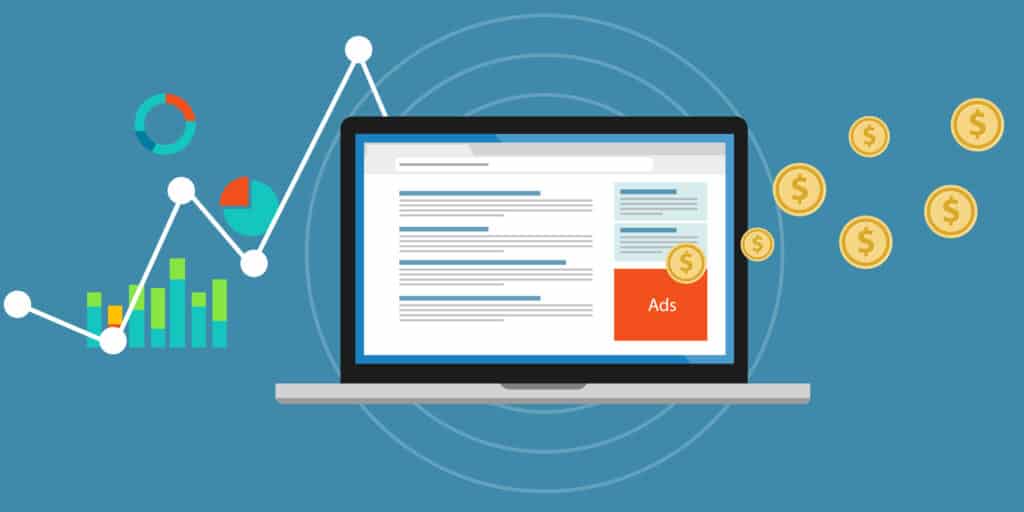
PPC vs Content Marketing: Get the Best of Both Worlds

While many marketers see pay-per-click and organic content as opposing forces, you don’t need to choose a side when it comes to creating an effective campaign. Using these channels to complement one another can amplify your message and boost your overall return on investment. In this guide, we dive into the differences between PPC vs content marketing and explore best practices to build smart strategies for both of these crucial areas.
Pinpointing the Purpose of PPC

These key features of PPC highlight how it diverges from organic content.
Significant Short-Term Impact
The synergy between PPC vs content marketing can drive both long-term and short-term results. PPC ads are most appropriate to get audience eyes on info about an immediate goal, like a sale related to a new product release or another short-term promotion. On the flip side, organic search builds your brand’s authority over months and years.
Expensive Investment
The name of pay-per-click marketing describes why this type of ad can be so costly; you’ll be charged every time a user clicks on your ad and for every single ad impression. Selective, curated use of PPC marketing can create the most impact even on a limited budget, but long-term use of these ads tends to be expensive and ineffective. When comparing PPC vs content marketing, the upfront costs of content marketing are limited to the investment in professional writing, unless you already have a content creator on staff.
Connecting With Content Marketing

When it comes to the PPC vs content marketing debate, these are the features that set organic search apart from its paid counterpart.
Long-Term, Compounding Results
If PPC ads set you up for the sprint, think of organic content as marathon training. Having a solid content strategy that drives ongoing interaction with your audience can create long-term results. Instead of short snippets about time-bound promotions, organic content should educate and entertain your reader.
The objective: Build engagement and trust by positioning your brand as a thought leader in your niche, with only soft references to your products and services. This effect also stabilizes your search results over time in comparison to paid search traffic, which wanes once you’re no longer spending money on those campaigns.
Here is another analogy that helps illustrate the difference between PPC vs content marketing. Blog and other long-form publications should be evergreen content. Think of them as trees that organically combine to create your brand’s breadth of knowledge and wisdom, the values that keep your readers engaged with your business and its offerings. As your brand publishes more and more high-quality content, you will see compounding returns in the form of increased rankings, revenue, leads, and traffic.
PPC ads are more like colorful perennials. They pop up for a specific season and then disappear until it’s time for their return.
Engagement Throughout the Funnel
When comparing PPC vs. content marketing, Pay-per-click ads are best used to target individuals who are ready to make a purchase. Organic content can connect with your prospects and customers at each and every point in the user experience. This cross-channel approach builds brand awareness by reaching your intended audience on their favorite sites and apps with content that provides real value.
Organic content is also a must to drive authentic user engagement. WebFX reports that 61% of consumers prefer to shop with brands that produce original online publications, while 70% said they would rather get to know companies through content compared to ads, one of the statistics we hear most often in the PPC vs content marketing debate.
Strategies for Synergy: Seamlessly Blending Organic and PPC

We already touched on the most important way to differentiate between organic search vs paid search tactics. These techniques can also help your brand balance your investment in and attention to these channels when considering PPC vs content marketing.
Fine-Tune Content Keywords With Paid Search
Before going all-in on content that emphasizes a new target keyword, test it out by seeing how it performs in a PPC ad. Since this approach ensures your audience will see the ad, you can gain insight into how well they respond. For example, low bounce and high conversion signify that you may want to dedicate funds to an organic campaign centered around that keyword phrase. You can also look at PPC vs content marketing to target competitive keywords within your niche, giving your organic content a boost on those tough terms.
Shatter the SERP Competition
Investing in PPC ads can increase visibility on search engine results pages (SERP), which creates cross-platform consistency for your brand. For example, you can purchase an ad for content that targets specific keywords, which in turn guides users who click through your landing page, to your offer and engage with the CTA. With consistent messaging and branding throughout this journey, these audience members will be more likely to select your link over a less familiar competitor’s content when it comes to organic search.
These PPC vs content marketing best practices will help you make the most of your investment in SERP strategy:
- Use paid ads to send users to your content. This strategy can increase visibility for a specific keyword and propel you to the top of the SERP. It’s also an ideal way to build cross-channel clicks as your audience begins to recognize you at all their favorite virtual haunts.
- Provide a consistent message with wording that aligns across your PPC vs content marketing strategies. Strong branding also assists with user engagement across social sites.
- Think about why users search for a specific keyword, then create your content around that intent. Rather than taking a downstream approach to marketing, you can proactively anticipate and develop products for your audience’s actual needs and pain points supported by real-time PPC vs content marketing data.
Make Strategic Budget Decisions

The detailed data you gain by combining organic search vs paid search into a single strategy can inform smart marketing budget decisions. Search Engine Journal reports that 61% of marketers planned to cut spending in an average year, so chances are you’ve had to make some tough choices in this area during your career.
Take the guesswork out of your next quarterly budget meeting by bringing hard numbers from your PPC vs content marketing plan. For example, to make cuts that have a medium-term impact, look for areas where you’re spending more than the average cost per click or ranking outside the top three organic search results on Google. Additionally, you may want to look into cutting additional costs by using a high-quality blog writing service to cut in-house costs and get optimized content catered to your business.
Support Geographic Expansion Efforts
Have you thought about expanding your business to a new region or city? Combining SEO vs PPC strategies can help you gather the intelligence you need to make the move a success, from sussing out opportunities to narrowing the shortlist of target regions, building audience personas, and looking for gaps in the market your brand can potentially fill.
Once you arrive, you can make a splash in your new location with PPC vs content marketing. Testing local keywords with paid ads can help you project estimated ROI in your new region and examine your competitors to find an edge.
Inform Smarter PPC Strategy
A strong ongoing organic campaign should always drive the success of paid ads to amplify your return on this costly investment. Customers who click on your ad want their needs met and questions answered, which means you need high-quality content to deliver on the promise of your PPC campaign.
When you invest in a paid search ad for a particular keyword, that keyword should also appear throughout your content. Even if you have the world’s greatest PPC copywriter, you’ll lose your audience if your online presence doesn’t position you as a trusted authority – which is where organic content comes into play.
Reach Out to Repeat Readers

Have you noticed that certain users frequently read, share and otherwise engage with your company’s content, but haven’t yet made a purchase? Or perhaps they bought from your brand once but never again?
While organic search provides these insights, paid ads are an important piece of the PPC vs content marketing puzzle for this audience sector. With Google, Facebook and other social ads targeted to these visitors, you can make sure your brand remains top of mind.
The Last Word on PPC vs Content Marketing
In answer to the great PPC vs. content marketing debate, we like to draw a comparison to the interaction of science and art. The straightforward single-channel approach of pay per click is more like science since you’re simply buying targeted ads based on your designated budget. Success in organic search requires a more nuanced, artistic approach that evolves with your brand over time.
To truly harness the power of organic search vs paid search, you should always be running some type of organic content campaign, such as a monthly blog writing subscription. Supplement your steady stream of evergreen content with paid search efforts to promote certain key events and initiatives. As with art and science, you might feel more drawn to PPC vs content marketing or vice versa. Avoid this urge to put all your energy into your preferred area, since you need both approaches for truly effective online marketing.
- How To Use Keywords in Your Content for SEO - September 20, 2024
- Creating Google-Friendly Content - December 31, 2023
- Which Type of Content Brings In the Most Traffic? - December 28, 2023

